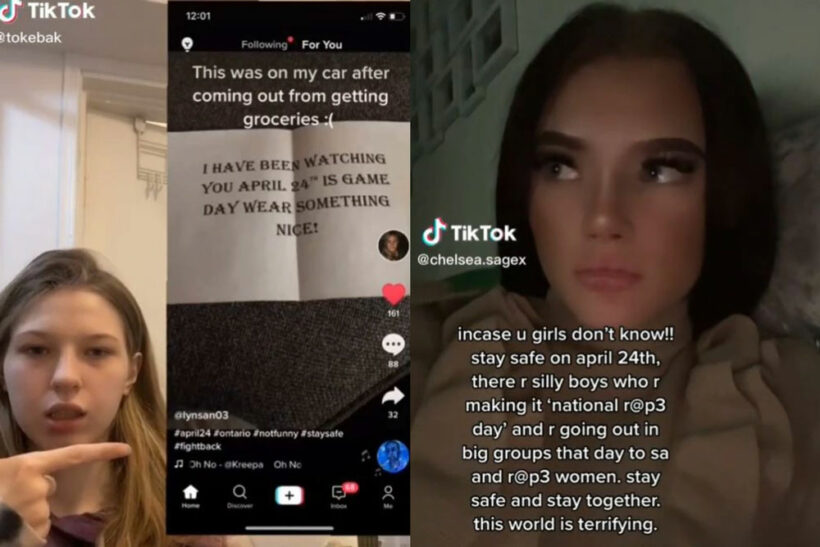I am writing this on March 8th, marking the date of International Women’s Day. Which makes me disheartened to say that as a woman, I am still burdened with gender inequalities my grandmother would’ve faced in the early 50s.
Over the past few weeks, the phrase ‘National Rape Day’ has been thrown around social media, most notably TikTok. The phenonenom which began in 2021 describes the rumour that April 24th marks the only day of the year where it is completely legal to – yep, unfortunately – “sexually assault anybody”. In the weeks leading up to the date, thousands of ‘for you pages’ are filled with users warning women to protect themselves and children from the alleged “large groups of men planning to sexually assault women”.
Obviously, shortly after phones first blew up, it was announced that the date was just a hoax. Many responded by treating it in a light-hearted manner and ignoring the warnings, because most people knew that the day won’t actually go ahead. Yet, two years later it’s still causing immense distress among TikTok’s predominantly young adolescent audience.
Just as most of the app’s 60-second to three-minute video content is treated, after April 24th passes, the commotions are forgotten, and dance trends and funny filters return to user’s ‘for you pages’. This is where the real issue stands. There has been limited long term responses to the ongoing concern of sexual harassment and assault. And while we know that ‘National Rape Day’ could never be a thing, people have forgotten that non-consensual touching and acts; or rape and assault occurs every day, to anybody.
Statistics continue to alarm. The Australian Government states in the Status of Women Report Card 2023: 1 in 4 women and 1 in 13 men have experienced sexual violence in their lifetime. 22% of young men believe men should take control in relationships and 36% believe women prefer the man to take control. Comparing Australia today to ten years ago, there is little progression in attitudes towards the issue. The Guardian statistics stating that “youths with a principal offence of sexual assault increased from 1,369 in 2012-2031 to 1,855 in 2013-14”, representing a jump of 36%. ‘National Rape Day’ mostly brought to life by youth shows the appalling continuing lack of education regarding sex, relationships, and intimacy to Australian young people.
In response, TikTok have released ample resources urging women to “protect themselves” and have provided helplines for victims. However, that content lacks the crucial resources needed to prevent these issues occurring.
Most was aimed at women with a vast dearth of resources teaching men basic respect. This takes its toll, the Australian Labour Party states that 30% of Australian men don’t even believe that gender inequality exists, which is more than the global average (21%).
‘National Rape Day’ is just one example of how youth and men aren’t educated on these issues to the level they should be. Which unquestionably is the reason why they continue to occur.
Too many articles like this one are being written and still not many changes are being made. The discussion needs to shift to how we can come together to provide better education to stop sexual harassment and assault occurring for the long term.






